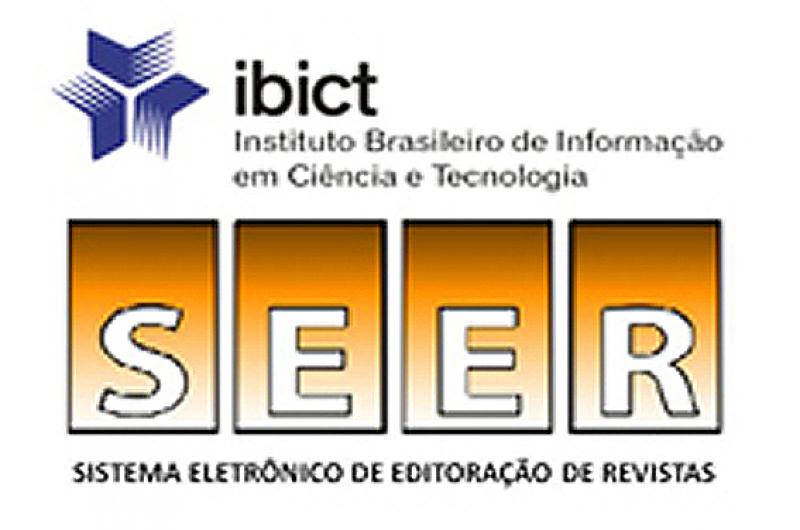OER sharing environment: a proposal of modeling, implementation and business model
Visualizações: 582DOI:
https://doi.org/10.31416/rsdv.v4i1.159Keywords:
Open Educational Resources, Repository, ACREA, Software Engineering, UML Modeling, Business model and sharing of REAAbstract
This research aimed to propose an environment of sharing open educational resources (ACREA) from the needs of a group of teachers. Thus the ACREA released the open educational resources (OER)-educational materials made available under public domain and licensed in an open and free to the community, that the access, use, adapt and
redistribute (WILEY, 2005). Based in Mallman and Jacques (2015), this research considers that the OERs have 5Rs
freedoms: retention, reuse, review, remix and redistribution. These freedoms are based on four principles of free software (TAURION, 2004): run, study, redistribute and improve. In this way, by means of online questionnaires were raised the system requirements from the needs of teachers about an environment of sharing of educational resources. The parsed data enabled the business model and the modeling ACREA in Unified Modeling Language (UML). After this step, the ACREA was developed and published in order to ensure access to the community. However, a few shared Areas on ACREA and low participation of teachers in the use of the tool.
References
ABDO, A. H. Educação aberta, a luta pelo
mais humano dos direitos - Wikiversidade.
Disponível em: http://goo.gl/zKgIsA.
Acesso em: 11 de novembro de 2014.
AMIEL, T.; OREY, M.; WEST, R. E. Recursos
educacionais abertos (REA): modelos para
localização e adaptação. ETD: Educação
Temática Digital, n. 12, p. 112-125, 2011.
BEZERRA, E. Princípios de análise e projeto
de sistemas com UML. 3a ed. Rio de Janeiro:
Elsevier, 2014.
DUTRA, R. L. S.; TAROUCO, L. M. R.
Recursos Educacionais Abertos (Open
Educational Resources). RENOTE: revista
novas tecnologias na educação, v. 5, n. 1, 2007.
FLICK, U. Uma introdução à pesquisa
qualitativa – um guia para iniciantes.
Tradução: Magda Lopes. Revisão técnica:
Dirceu Silva. Porto Alegre: Penso, 2013.
FSF, FREE SOFTWARE FOUNDATION.
Libre Documentation Explained. 2007.
Disponível em:
https://www.gnu.org/gwm/libredocxml/x53.htm
l. Acesso em: 11 de novembro de 2014.
HEUSER, C. A. Projeto de banco de dados.
Série Livros didáticos informática UFRGS.
Vol. 4. Porto Alegre: Bookman, 2009.
HILEN, J. Open Educational Resources:
Opportunities and Challenges. OECD’s Centre
for Educational Research and Innovation.
Disponível em:
<http://www.oecd.org/dataoecd/5/47/37351085.
pdf >. Acesso em: 15 de dezembro de 2014.
IMS, IMS GLOBAL LEARNING
CONSORTIUM INC. IMS Learning
Specification: Information Model, 2003.
Disponível em:
http://www.imsglobal.org/learningdesign.
Acesso em: 26 de maio de 2015.
LIANG, L. Guide to open content licenses.
Roterdam: Piet Zwart Institute, 2004.
Disponível em:
http://pzwart.wdka.hro.nl/mdr/research/lliang/
open_content_guide. Acesso em: 22 de
dezembro de 2014.
MALLMANN, E. M.; JACQUES, J. S.
Recursos Educacionais Abertos (REA) na
Pedagogia do e-Learning. In: ROSADO, L. A.
S.; FERREIRA, G. M. S.; Educação e
tecnologia: parcerias. Vol. 4. Rio de Janeiro:
Editora Universidade Estácio de Sá, 2015.
MALLMANN, E. M.; JACQUES, J. S.;
SONEGO, A. H. S.; TEIXEIRA, T. G.;
TOEBE, I. C. D. DOMINGUES, F. R.
Potencial dos recursos educacionais abertos
para integração das tecnologias e convergência
entre as modalidades na UFSM. Revista
Eletrônica de Educação, v. 7, n. 2, p. 263-284,
Disponível em:
http://dx.doi.org/10.14244/19827199742.
Acesso em: 25 de dezembro de 2014.
MARCONI, M. A.; LAKATOS, E. M.
Técnicas de pesquisa. São Paulo: Atlas, 2002.
MAXIM, B. R.; PRESSMAN, R. S.
Engenharia de software - uma abordagem
profissional. 8a ed. Porto Alegre: Bookman,
MERRIL, M. D. Knowledge objects and
mental models. In: WILEY, D. A. (org.). The
Instructional Use of Learning Objects. 2000.
Versão online. AIT/AECT. Disponível
em:<http://reusability.org/read/>; Acesso em:
de dezembro de 2014.
OLIVEIRA, F. K.; ABREU, K. F. O estado da
arte dos recursos educacionais abertos. In:
ABREU, K. F. (orgs.). Múltiplos olhares
sobre o agir científico do Campus Salgueiro.
Recife: Pipa Comunicação, 2016.
OLIVEIRA, F. K.; ABREU, K. F.; SILVA, A.
A. G. Formação profissional em recursos
educacionais abertos. Revista Semiárido De
Visu, v. 3, n. 2, p. 98-109, 2015. Disponível
em: http://periodicos.ifsertao-
pe.edu.br/ojs2/index.php/revista/article/view/20
Acesso em: 30 de abril de 2016.
OLIVEIRA, F. K.; GOMES, A. S. Recursos
educacionais abertos: materiais auxiliares à
prática tutorial. In: OLIVEIRA, F. K.; ABREU,
K. F. (orgs.). Experiências de pesquisas em
tecnologia e educação. Recife: Pipa
Comunicação, 2015a.
OLIVEIRA, F. K.; GOMES, A. S. A
development model of units of learning for
multiple platforms. In: Information Systems
and Technologies (CISTI), 2015 10th Iberian
Conference on. IEEE, 2015b. p. 1-6.
Disponível em: Acesso em: 29 de junho de
______. Software livre como SAAS para
compartilhamento de REA. In: OLIVEIRA, F.
K.; ABREU, K. F. (orgs.). Experiências de
pesquisas em tecnologia e educação. Recife:
Pipa Comunicação, 2015c.
OLIVEIRA, F. K.; SANTANA, J. R.;
PONTES, M. G. O.; CUNHA, R. B. O ensino
de geometria por meio de múltiplas
plataformas: uma experiência com o Geonext.
Revista de Ensino de Ciências e Matemática,
São Paulo, V. 2, N. 1, jun., 2011. Disponível
em: http://revistapos.cruzeirodosul.edu.br/index.php/rencima/article/view/49. Acesso em: 22 de dezembro de 2014.
OLIVEIRA, F. K. O vídeo pela internet como
ferramenta educacional no ensino da
Geometria. 2010. 102f. Dissertação (Programa
de Pós-Graduação em Ciências da
Computação) - UECE, Fortaleza, 2010.
PAULA FILHO, W. P. Engenharia de
Software: fundamentos, métodos e padrões. 3a
ed. Rio de Janeiro: LTC, 2009.
REINEHR, R. Recursos educacionais abertos
na aprendizagem informal e no autodidatismo.
In: SANTANA, B.; ROSSINI, C.; PRETTO, N.
L. Recursos Educacionais Abertos: práticas
colaborativas políticas públicas. São Paulo:
EDUFBA, p. 153-176, 2012.
ROSEN, L. Open Source License: Software
Freedom and Intellectual Property Law. Upper
Saddle River, NJ: Prentice Hall, 2005.
TAURION, C. Software livre: potencialidades
e modelos de negócio. São Paulo: Brasport,
WILEY, D. A. The Current State of Open
Educational Resources. 2005. Disponível em:
<http://www.oecd.org/document/32/0,2340,
en_2649_33723_36224352_1_1_1_1,00.html>.
Acesso em: 12 de outubro de 2014.
WILEY, D. A.; GIBBONS, A.; RECKER, M. A
reformulation of the issue of learning object
granularity and its implications for the design
of learning objects. The instructional use of
learning objects. Bloomington, Indiana:
Agency for Instructional Technology and
Association for Educational
Communications of Technology, 2000.
Disponível em:
<http://reusability.org/granularity.pdf>. Acesso
em: 15 de outubro de 2014.















